That Karachi, a sprawling city of over 15 million people, is truly a melting pot of Pakistan's ethnic and religious groups is most visible over the Eid Al-Adha holiday, when festivities are deeply entrenched in tradition and different types of cuisine form the hallmark of how different communities celebrate.
Eid Al-Adha, or Festival of Sacrifice, is the second of the year’s two major Islamic holidays, on which people across the Muslim world traditionally sacrifice a lamb — or goat, cow or camel, depending on the region and level of wealth — and divide the meat among the poor, friends and relatives, and immediate family.
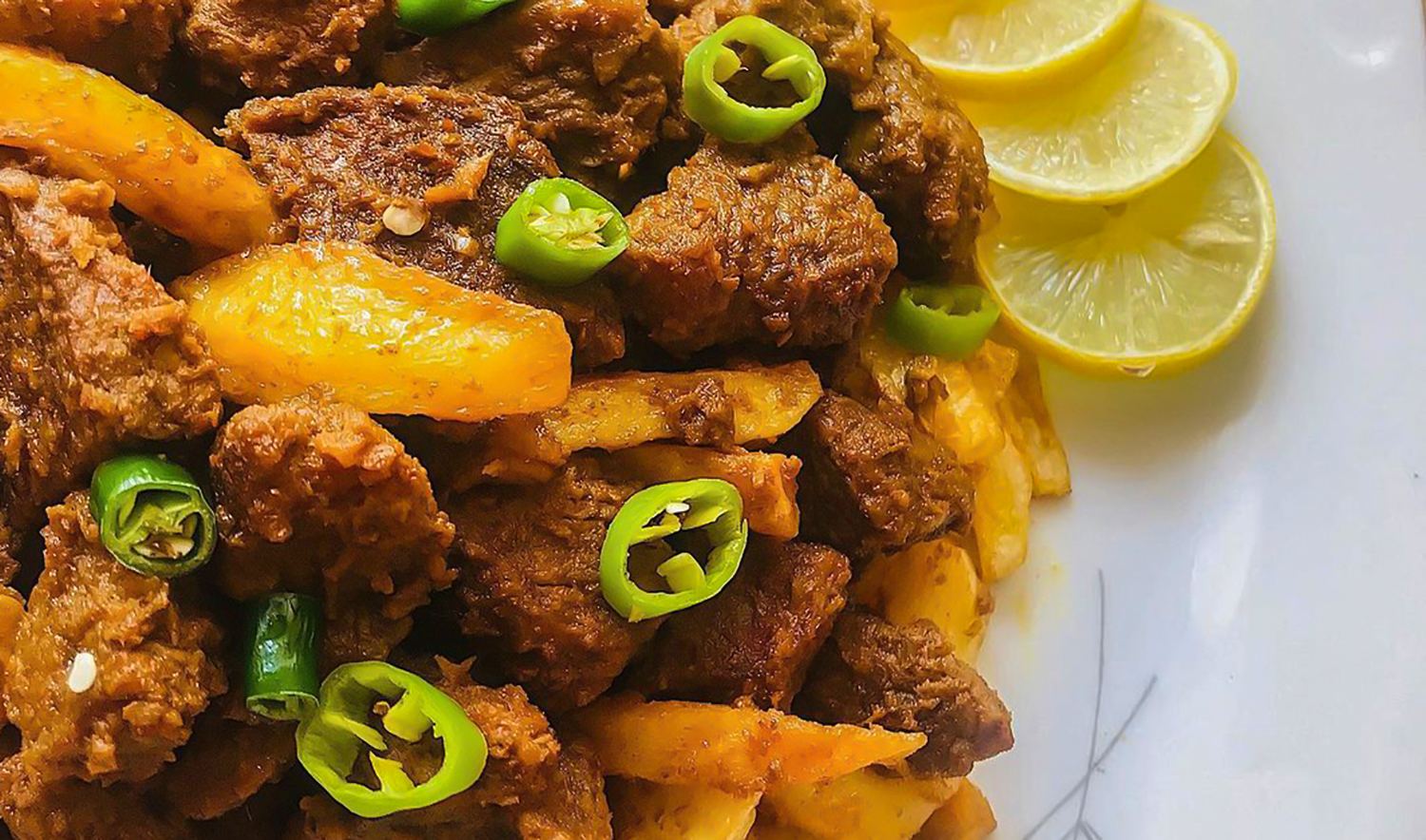
A fairly quick meat dish, Tala Hua Gosht, with basic ingredients that are always best to serve. (Photo courtesy: @cookingwithrida/Instagram)
Meat is central to Eid Al-Adha, which many Pakistanis refer to colloquially as Bakra Eid, or Festival of the Lamb, and in Karachi, the diverse communities that make up the megacity’s vibrant culture celebrate Eid Al-Adha by preparing meat dishes unique to their history and traditions.
While many Karachites will recommend Sindhi biryani - a spicy rice dish named after the ethnic Sindhi-speaking people of Pakistan’s southern Sindh province but loved by both Sindhis and non-Sindhis alike - many Sindhis say there’s no such thing as Sindhi biryani in their culture. Sindhi Bhatt, which is a pulao, is the dish indigenous to their community.
“We make Sindhi pulao that has a special ingredient, tamarind, which adds a sharp taste to it,” Shaista Shaukat, a 55-year-old Sindhi housewife, told Arab News. “There is no concept of Sindhi biryani in our culture, it is just found on the packet of Shan [spice mixes].”

Green Rice is a unique item one would only find in Sindhi households; it is made with usual spices, in addition to Soya and Coriander that bring a unique taste to it. (Social media)
Green Rice is another dish that Sindhi-speaking households prepare on Eid, Shaukat said, which, in addition to the usual spices in Pakistani dishes, also uses soya and coriander.
“It is usually served with yogurt,” the homemaker said.
Mohajirs, the descendants of Urdu-speaking people who migrated from India after the creation of Pakistan in 1947, are one of the city’s biggest communities and also have their set of Eid specials: Kaleji (cooked liver of chicken or mutton), Pasanday (a popular subcontinental dish made from flattened meat), Chapli Kebab (made with minced meat) and Paaye (prepared from the hoofs of a cow, goat, buffalo or sheep).
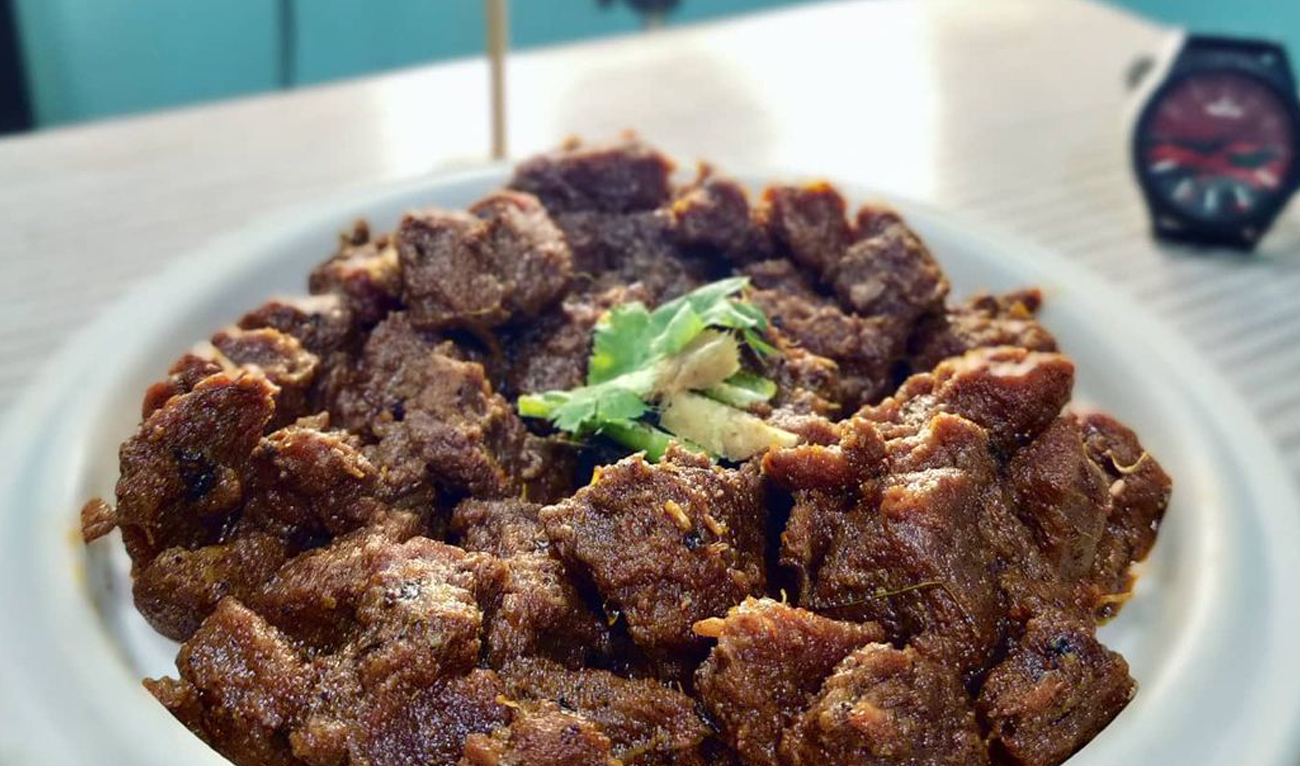
Bhuni Choti Boti — an Eid special dish in Pakistani Mujahir families. (Photo courtesy: @abu_khan9767/Instagram)
At the home of Yusra Salim, a 31-year-old Urdu-speaker, Bhuni Choti Boti is an Eid Al-Adha staple.
“We cut the meat into small chunks and add it to fried onions,” she explained. “Homemade spices combined with yoghurt are added to it … It is served after being cooked to perfection.”
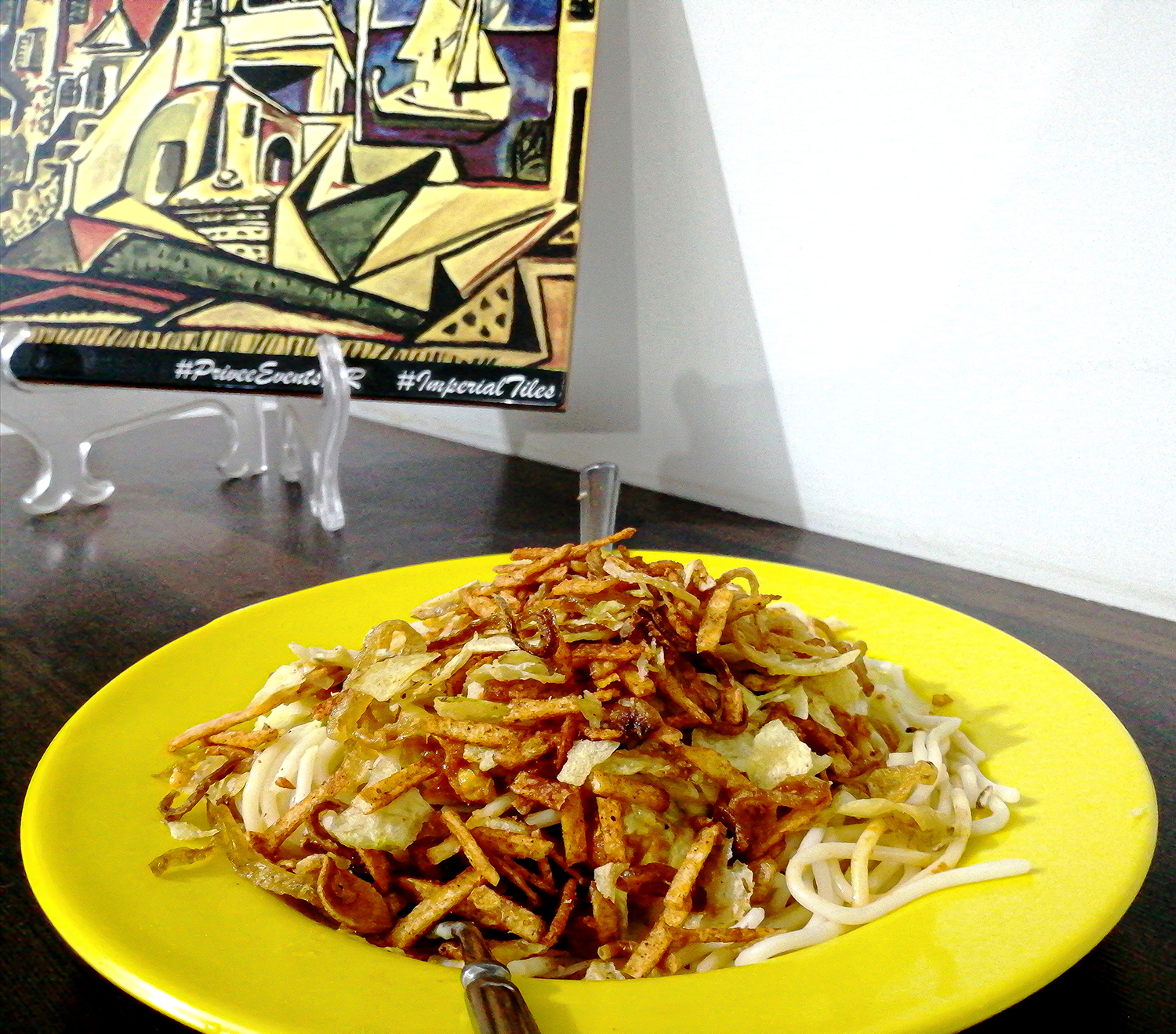
Khausuey is a popular item on the Eid menu in Memon households. It includes boiled spaghetti, topped with coconut curry, and thick beef gravy with added crispy condiments combined together. (Social media)
Another important community in Karachi are the Memons, a Muslim ethnic mercantile community known for their khausey, a dish that traces its origins to Burma. The Memon version comprises boiled spaghetti, topped with coconut curry and beef gravy with some crispy condiments added on top.
“We particularly make beef khausey around Eid Al-Adha, the gravy is very thick with small chunks of beef,” Khatija Shabbir, 55, the head chef at Spicogetti, an online eatery in Karachi, told Arab News.
“We also make beef akni, which is very popular in Memon households,” she added, referring to a variation of biryani or pulao.
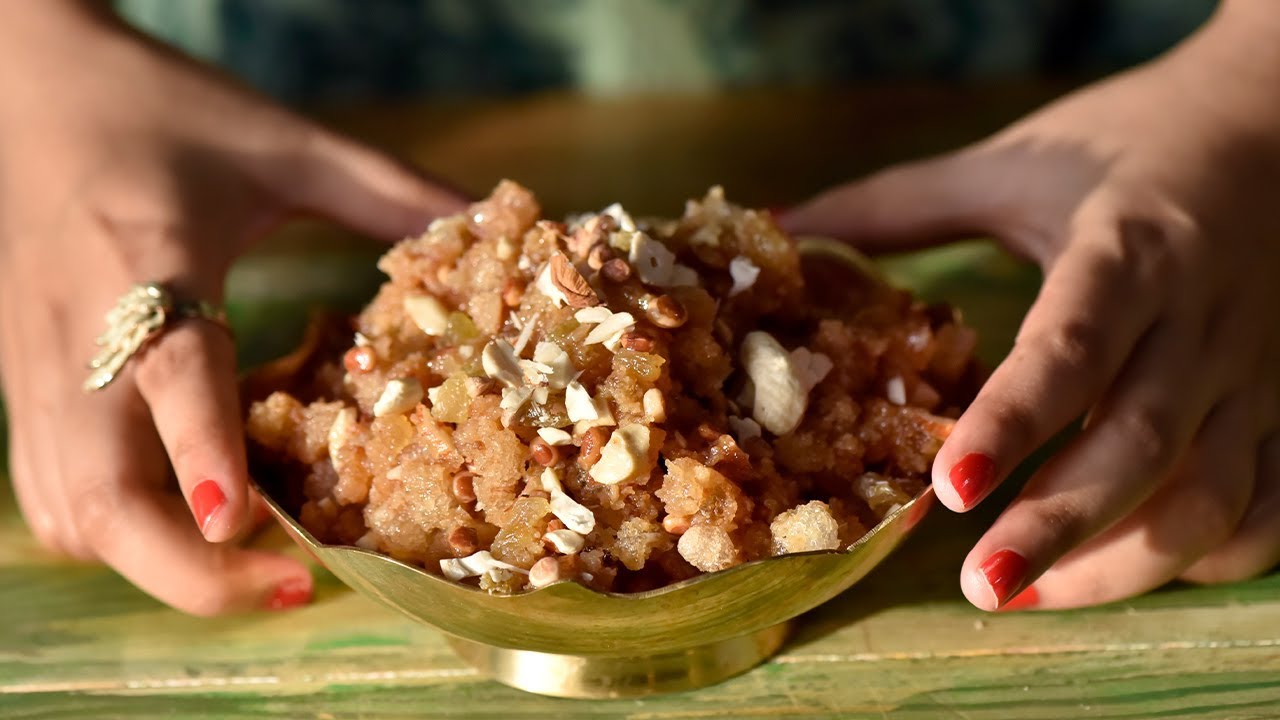
Bohras believe that Maleeda dessert counters all the meat they consume during the occasion. It is made with jaggery, edible gum, wheat flour, clarified butter, and dry fruits. (Photo courtesy: Awesome Sauce India/YouTube)
Members of Karachi’s Bohra community, a religious denomination among the Islamic faith, said they prepared Gushtuba every Eid Al-Adha.
“It is a bit similar to hunter beef, for your understanding but the process is very unusual,” Zohra Lilyawala, a 50-year-old housewife who designs and sells bedsheets and abayas, told Arab News.
“We boil meat with homemade spices and then blend it with our hands, after which the shredded meat is spread in trays and left overnight to dry.”
The next day, the meat is sautéed in a pan with turmeric and then kept under the sun for two days.
“We then freeze it for use over the year. It can be served with egg for breakfast or added to vegetable meals, etc,” Liyawala said.
A favorite Eid dessert among Memons is Maleeda, she said, prepared with gurr, or jaggery, a natural product of sugarcane, gundar, which is edible gum, gehun ka atta or wheat flour, desi ghee, clarified butter, and dry fruits.
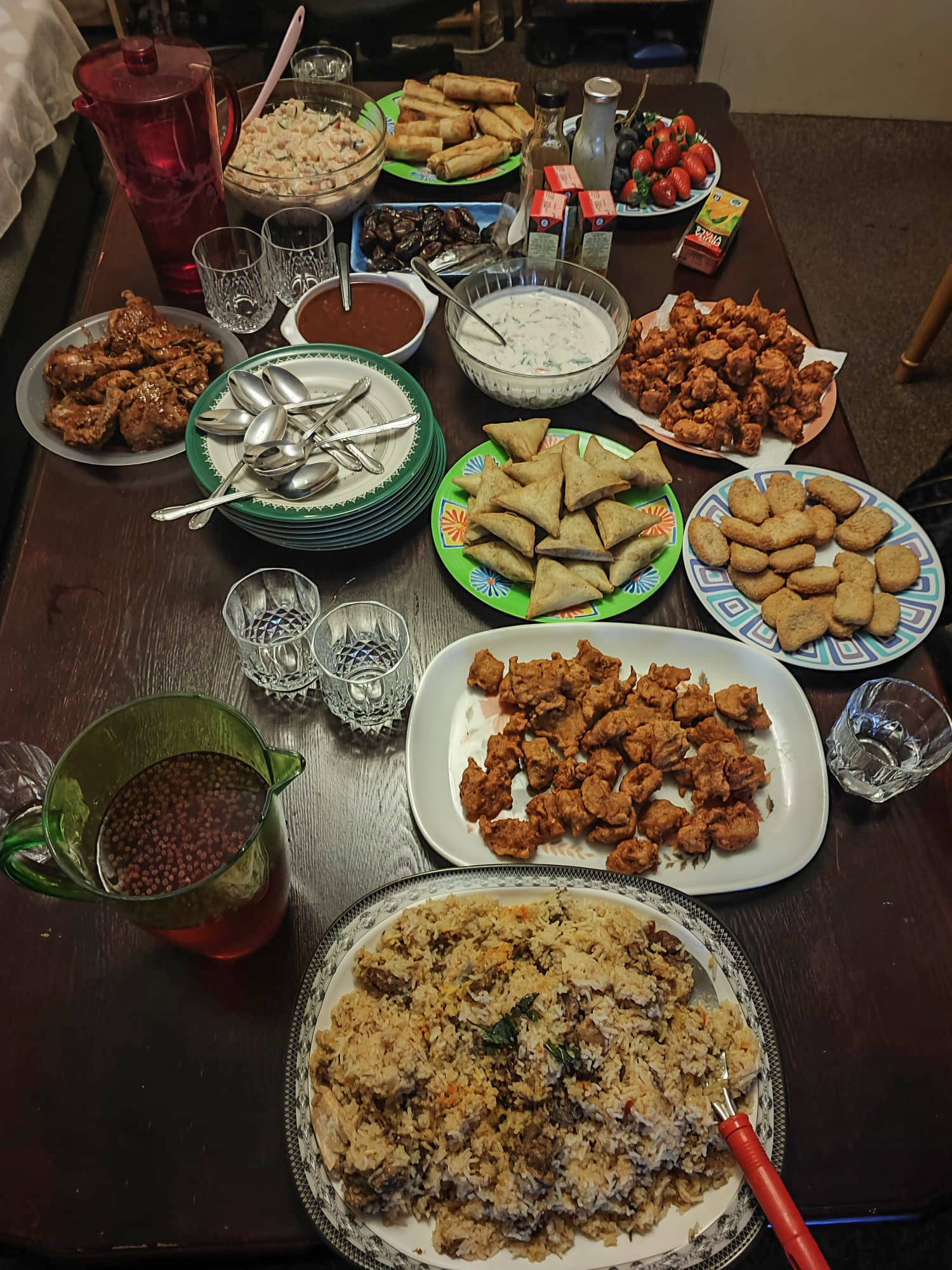
An Eid food spread in a Pashtun household including Biryani, samosas, rolls, etc. (Social media)
Karachi's Pashtuns, a group that mostly resides in Pakistan’s northwestern Khyber Pakhtunkhwa area and traces its roots in Afghanistan and other Central Asian countries, feast on kaleji and biryani for Eid Al-Adha.
“Right after qurbani [animal sacrifice], we make kaleji,” Fahar Khan, a 28-year-old IT expert, told Arab News, “followed by biryani at lunch.”
Karachi-based Sumair Khan, who also hails from a Pashtun background, said her family loved to consume fried meat with biryani and kaleji.
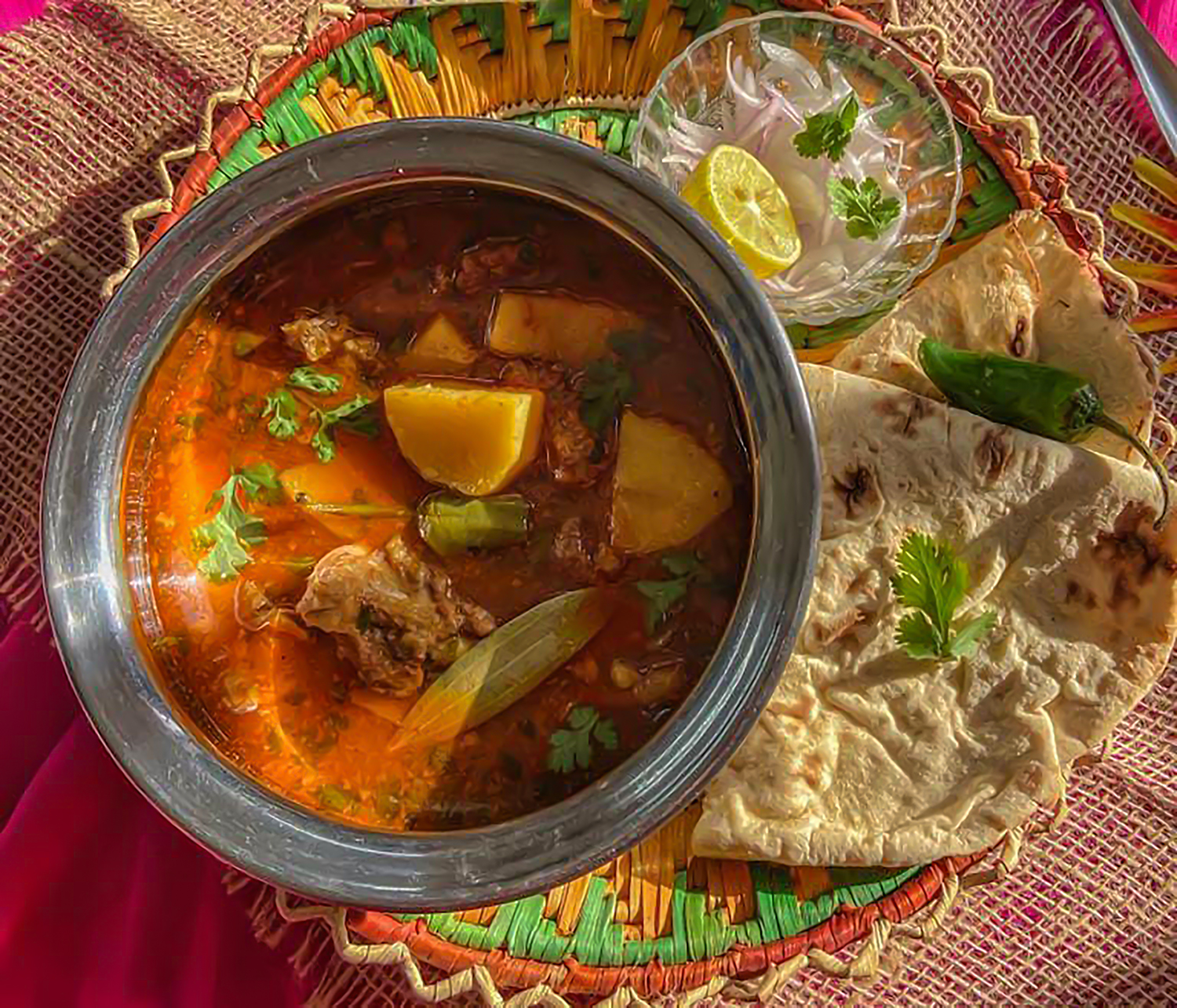
Ismailis make sure to make the meal with Qurbani meat; seen here is Gosht Saalan which is meat gravy with potatoes, served with chapati and salad. (Social media)
Fatima Saleem Rajani, a 30-year-old teacher who is Ismaili, a religious denomination within the Shia faith, said members of her community cooked a beef and potato gravy dish for Eid.
“But whatever we make, we make sure it is made from qurbani,” she said. ““Even if someone hasn’t done their own sacrifice, they make the dish with the meat they received from those who have done it. But the dish has to be made with it [sacrificial meat].”












